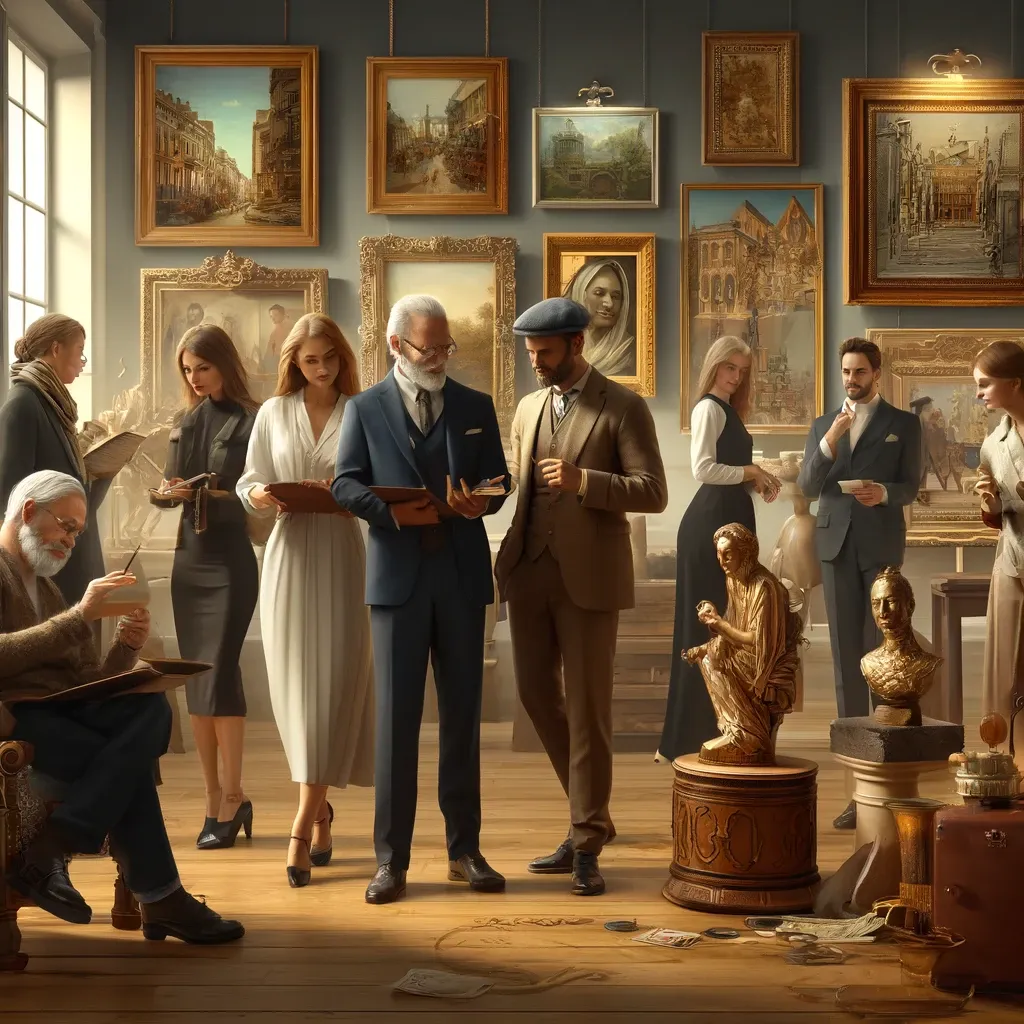Saga Memorabilia

Being a Collector: Beyond Passion, a Practice of Discipline, Order, and Creativity
Being a collector is not merely a hobby or an activity for those who like to accumulate objects. It is a way of life that often reflects a deep passion for art, history, culture, or even personal memories. Collectors are more than just buyers: they are guardians of stories, conservators of the past, and, in many cases, experts in the subject they choose to collect. However, behind this passion for gathering items, being a collector also brings important benefits that go far beyond simply acquiring articles. Discipline, order, and constant learning are just a few of the key aspects that define a successful collector.
- Passion as the Main Driver
One of the first aspects that defines a collector is passion. Whether it’s for art, antiques, comics, toys, historical memorabilia, or any other category, the collector seeks objects that resonate with their personal interests. This passion becomes the engine that drives the dedication and effort needed to build a meaningful collection.- Emotional connection: Most collectors won’t settle for just any item; they look for pieces that have special value, whether due to their rarity, history, or emotional significance.
- Perseverance: Passion pushes collectors to keep searching, learning, and improving their collection. This often involves travel, research, and investing time and resources into discovering unique pieces.
- Discipline and Commitment: The Collector’s Path
Being a collector requires a high level of discipline. Unlike other hobbies that may be more sporadic, building a collection involves patience and determination. Organization and setting long-term goals play a key role.- Constant research: To be a good collector, it is necessary to study. This means learning about the history of the objects collected, their cultural context, their market value, and the best ways to preserve them. Research becomes a constant process that enriches the overall experience.
- Rituals and habits: Many collectors establish routines for acquiring new pieces, such as attending auctions, fairs, or browsing online marketplaces. These habits help them stay one step ahead while maintaining focus on their ultimate goal.
- Order and Organization: Keys to Successfully Managing a Collection
Order is fundamental for any collector. As a collection grows, having an organized system to manage it becomes crucial. From properly storing objects to keeping a detailed record of each piece, organization ensures the collection remains in top condition and facilitates its growth.- Conservation and care: A collector learns how to preserve their items in the best possible way. This may include using special cases, controlling humidity and light, or digitally cataloging the collection. Valuable or fragile objects require particular care to ensure their longevity.
- Catalogs and archives: Many collectors create detailed inventories for each item in their collection. This helps maintain order, makes it easier to identify pieces, and assists in assessing their value.
- Developing Specialized Skills and Knowledge
Being a collector goes beyond mere acquisition. As a person becomes more involved in collecting, they become an expert in their field of interest. Over time, they develop a deep understanding of the objects they collect, their origins, and their evolution.- Specialization: Many collectors become specialists in a particular area, such as contemporary art, ancient coins, or vintage toys. This specialization not only allows them to identify valuable items but also gives them the ability to share their knowledge with other collectors or even the public.
- Continuous education: Collecting leads to a constant update of knowledge, whether by attending lectures, reading specialized books, or participating in online communities. As the collection evolves, so does the collector, who is continually learning about new trends, preservation techniques, and market changes.
- Psychological and Social Benefits
Beyond practical benefits, being a collector also positively affects psychological and social well-being. The act of collecting can provide a sense of accomplishment, personal satisfaction, and, in many cases, a deep connection with other collectors.- Personal satisfaction: Watching a collection grow and finally finding that long-sought-after piece can generate a sense of achievement and happiness. Many collectors experience profound satisfaction when they complete a portion of their collection or acquire a rare item.
- Social networks and communities: Being part of a collector’s community also has social benefits. Whether online or at in-person events, collectors can share their passion with others who have similar interests. This support network not only fosters idea exchange but also offers opportunities to make friends and professional connections.
- Economic and Cultural Value of the Collection
In many cases, a well-managed collection can hold significant economic and cultural value. The rarest or most valuable pieces may appreciate over time, turning the collection into an investment.- Value appreciation: Over time, rare and well-preserved pieces tend to increase in value. This not only provides economic returns for the collector but also creates a legacy of cultural and historical importance.
- Cultural impact: Collections of art, antiques, or even old toys can have a profound impact on cultural preservation. Often, these objects become essential elements for understanding a civilization’s past or a cultural movement’s influence.
Conclusion
Being a collector is much more than a simple hobby; it is a practice that fosters discipline, order, constant learning, and commitment. Collectors do not just seek items, they build a personal and cultural legacy that often transcends generations. While this activity may seem solitary at times, it connects individuals with the past, allows them to acquire new skills and knowledge, and provides a constant source of personal satisfaction. Undoubtedly, collecting is an art form in itself, bringing profound rewards to both the collector and society at large.

